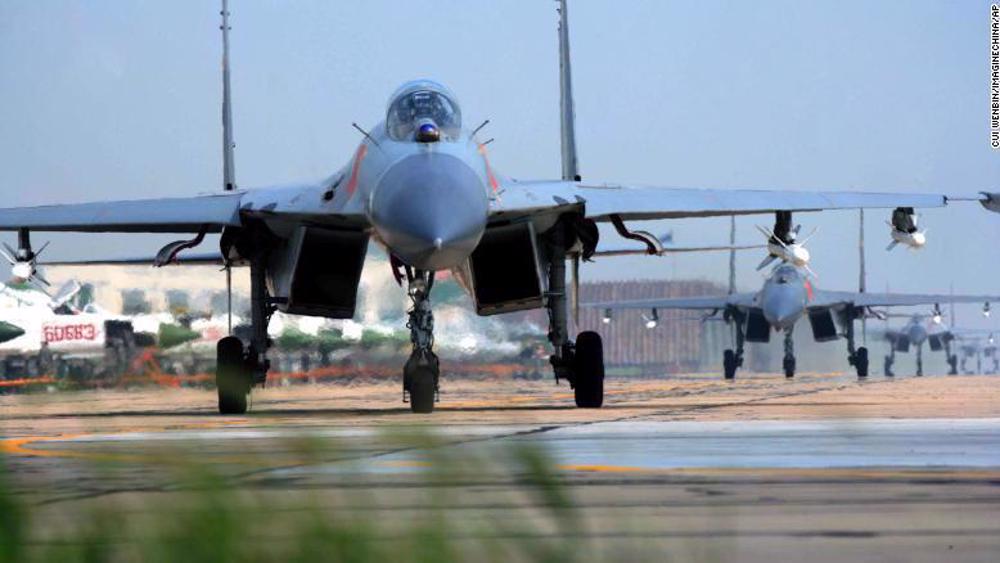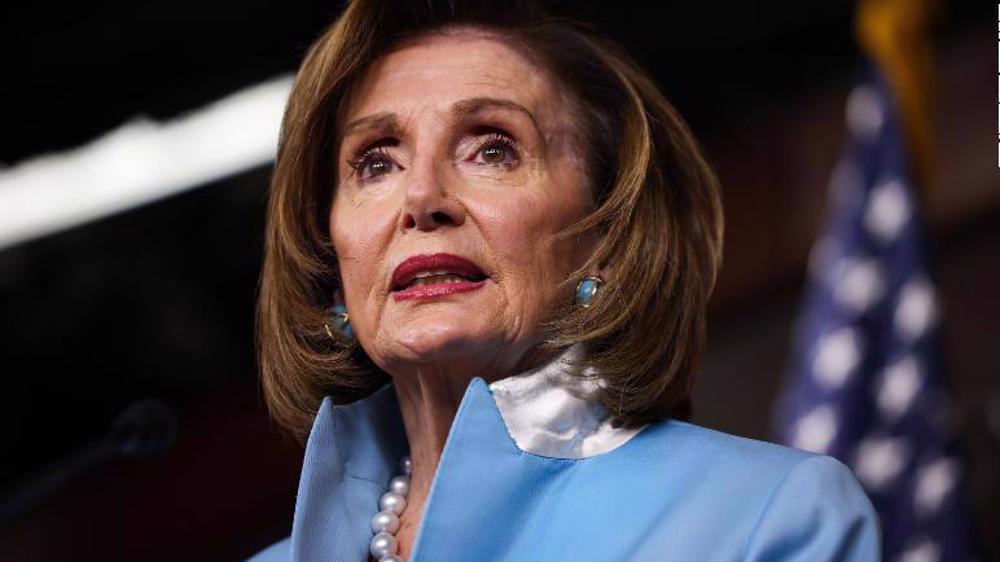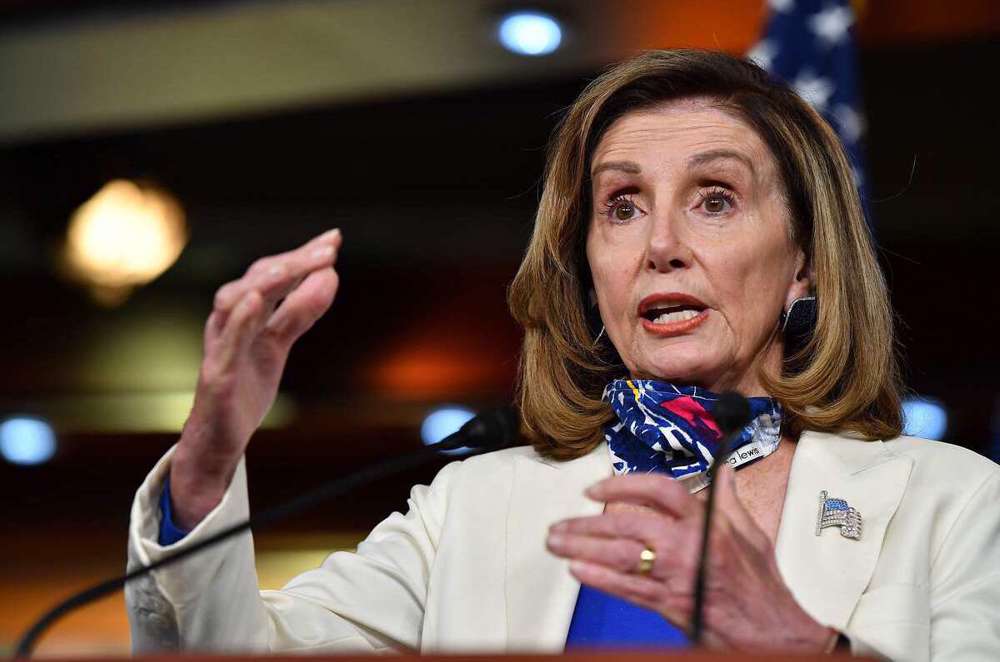Chinese Taipei is redline that US should not meddle with: Chinese expert
China has conveyed to the United States that Chinese Taipei (Taiwan) is a redline that Washington should not meddle with, according to a Chinese political analyst and researcher.
Yilun Zhang, who is a Research Associate and Administrative Officer at the Institute for China-America Studies, made the remarks in an interview with Press TV on Thursday.
China has warned the United States of "strong measures" over a potential visit by Nancy Pelosi, the speaker of the US House of Representatives, to Taiwan, saying Washington would be responsible for any consequences.
Joe Biden administration officials have reportedly expressed concerns that China may try to impose a no-fly zone over Taiwan ahead of the visit.
“It is not surprising that China is reacting significantly stronger to Speaker Pelosi's potential visit to Taiwan in August than any other tension over Taiwan,” Zhang said.
“Pelosi's visit to Taiwan, from Beijing's perspective, is a significant change of status quo, which seriously violates what the US and China agreed on in the Three Joint Communiqués. If she lands in Taipei, the Speaker is not only the highest-ranking American lawmaker but also the second politician in the US presidential succession line. Therefore, despite the Biden administration's attempt to draw lines between the executive and the legislative branch, it means little difference to the Chinese side, which is why it still points its finger to the White House, not just Congress,” the analyst explained.
“Moreover, Beijing's frustration is also due to the fact that its being warning the US about the consequences of meddling on the issue of Taiwan for months, yet the Biden administration did little to improve the status quo and let the situation fall. Pelosi's plan to visit Taiwan was first reported in April yet canceled due to COVID. Since then, China's concern about the US making any further move on Taiwan can be found in every official bilateral engagement and Foreign Ministry press conferences,” he noted.
“China's signal is clear, Taiwan is a redline that the US should not meddle with. This message was delivered by Wang Yi during his meeting with Anthony Blinken during the G20 sideline meeting early this month, by Wei Fenghe to Austin in Singapore during the Shangri-La Dialogue and by Yang Jiechi to Jake Sullivan during their meeting in Luxembourg in June. The Biden administration, despite repeatedly clarifying that it sticks with the one-China policy, apparently failed to control the situation, which, in Beijing's view, brings questions to what Washington's genuine intention is on Taiwan,” the expert said.
‘China may respond militarily to Pelosi's Taiwan visit’
US President Joe Biden said last week the Pentagon was concerned about a backlash from China and was seeking to discourage the visit from happening.
“The military thinks it’s not a good idea right now,” Biden said as he stepped off of Air Force One at Joint Base Andrews in Maryland, “but I don’t know what the status of it is.”
China’s foreign ministry has warned that Beijing would take "forceful measures" if Pelosi visits Taiwan as reported by sections of US media.
“The fact that it was the military opposing Pelosi's Taiwan visit hints that the possibility of China responding militarily is rather high,” Zhang said.
“It would not be surprising if China conducts military drills near Taiwan. This happened when a group of US lawmakers visited Taiwan in April. Given Speaker Pelosi's significantly higher profile, the military reaction may be more aggressive,” he said.
“Some Chinese scholars suggested that China could send a fighter jet to accompany Pelosi's flight. Moreover, if Beijing views Pelosi's visit to Taiwan as a turning point in the Taiwan status quo, it is possible that Beijing also considers changing the status quo reciprocally. For instance, regularizing fighter jet flyovers of Taiwan's airspace. Whatever that consequence may be, it would most likely be military, and the status quo of the Taiwan situation could be shifted forever,” he stated.
The Biden administration has been testing China's bottom line on bilateral relations and the Chinese mainland's staunch determination to reunify with Taiwan island with more frequent maritime provocations and US politicians' interactions with the Taiwan authorities.
They said that the consequences for the Biden administration would be fatal and unbearable if it continues on this path.
‘US perception of China has deteriorated’
“For the Biden administration, it is hard to believe that it genuinely seeks conflict with China. While the US perception of China has significantly deteriorated in recent years for various reasons, pure security concern would not solely lead to open conflict between the two militaries,” Zhang said.
“The Department of Defense's opposition to Pelosi's Taiwan visit shows that despite genuine and serious concern about China, the US could still make reasonable assessment of the situation instead of derailing the relationship top a fallout. It could be regarded as a positive outcome of recent US-China bilateral engagement,” he said.
“The in-person meeting between Secretary of Defense Lloyd Austin and Chinese Minister of Defense Wei Fenghe during the Shangri-La Dialogue, which primarily focused on the issue of Taiwan, appears to draw a clear bottom-line for the US military,” he said.
“Both President Biden and President Xi Jinping agreed to better manage competition and prevent conflict. The American president repeatedly refers to ‘establishing guardrails’ as his direction to manage US-China relations. Should the warning from the US military help halt Pelosi's trip, it would be the first successful case of the ‘guardrails’. That said, it is still up to President Biden to decide what type of ‘guardrail’ he likes for US-China relations. Guardrails can be both protective and preventive,” he said.
“Whether the president decides to change the course and avoid the crash when seeing the guardrail or crash into the guardrail and hope for the protective measures to stop the bilateral relationship from falling off the cliff, will be the key factor in whether the US and China will go down a dangerous path,” he stated.
“The deteriorating US perception of China does not necessarily lead to an open conflict between the two countries. It is the capability to manage differences that could impact the fate of US-China relations,” the analyst concluded.

Biden set to lose re-election over his genocidal policy in Gaza: US journalist

Frightful Biden-Trump rematch planned for November: Analyst

US Empire controlling people's minds to maintain hegemony: Scholar
Hayya: Hamas ready to hold talks for ‘comprehensive’ peace deal
Iran strongly condemns 'brutal' US airstrikes on Yemen’s fuel port
IRGC kills ringleader of terror group behind deadly attacks in SE Iran
IAEA deputy chief to visit Tehran for technical discussions: Iran nuclear spox
Trump induces socio-economic turmoil in Washington
VIDEO | The story of Areej: Channeling grief purposefully
VIDEO | Press TV's news headlines
VIDEO | GoT actress on life before and after Gaza









 This makes it easy to access the Press TV website
This makes it easy to access the Press TV website